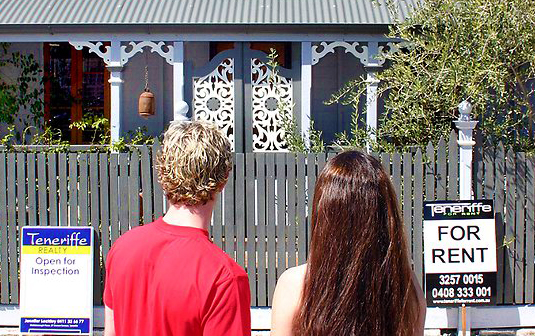It is important to get all the facts before you purchase a property.
When buying a property it is vital to ensure you tick all the boxes to ensure you minimise any risk associated with buying a second hand property with issues. Most new buildings will come with a 6 years builders warranty on major defects and 12 months on minor.
Older houses will not come with a warranty. It is not un common for older houses to have had a history with renovations, repair or environmental conditions that may have altered the original state of the building.
When purchasing a property there are a few vital things you should check to ensure you are aware of the state and condition of the property and this checklist may help.

When purchasing a property there are a few vital things you should check to ensure you are aware of the state and condition of the property and this checklist may help.
- Building and pest inspection. A building and pest inspection is a visual inspection carried out by a licensed builder and timber pest inspector to assess the state of the property at the time of inspection. This will include structural, safety, timber pests such as termites, borer and timber decay.
- The building and pest inspection may identify issues such as poor site drainage, electrical hazards and so forth. In addition to a building and pest inspection you should have a plumber check the adequacy of plumbing to include items such as septic tanks and pipework. An electrician is also advised to be engaged to check electrical safety switches and test fire alarm and appliance adequacy.
- Pool, If a pool is present the vendor should also provide a pool safety certificate. This is vital in ensuring the pool is safe and compliant.
- Renovations. If the property has had recent renovations, Ensure you obtain documentation from council that the works are compliant. This ensures that all works meet current building code.
- Renovated bathrooms should be accompanied with a waterproofing certificate.
- If you are renting the property, It is your obligation as a landlord to ensure the building meets current requirements.
(1A) Without limiting the circumstances in which residential premises are not fit for habitation, residential premises are not fit for habitation unless the residential
premises:
(a) are structurally sound, and
(b) have adequate natural light or artificial lighting in each room of the premises other than a room that is intended to be used only for the purposes of storage or a garage, and
(c) have adequate ventilation, and
(d) are supplied with electricity or gas and have an adequate number of electricity outlet sockets or gas outlet sockets for the supply of lighting and heating to, and use of appliances in, the premises, and
(e) have adequate plumbing and drainage, and
(f) are connected to a water supply service or infrastructure that supplies water (including, but not limited to, a water bore or water tank) that is able to supply to the premises hot and cold water for drinking and ablution and cleaning activities, and
(g) contain bathroom facilities, including toilet and washing facilities, that allow privacy for the user.
(1B) For the purposes of subsection (1A) (a), residential premises are structurally sound only if the floors, ceilings, walls, supporting structures (including foundations), doors, windows, roof, stairs, balconies, balustrades and railings:
(a) are in a reasonable state of repair, and
(b) with respect to the floors, ceilings, walls and supporting structures—are not subject to significant dampness, and
(c) with respect to the roof, ceilings and windows—do not allow water penetration into the premises, and
(d) are not liable to collapse because they are rotted or otherwise defective.
For further information please call 0266 453 450


